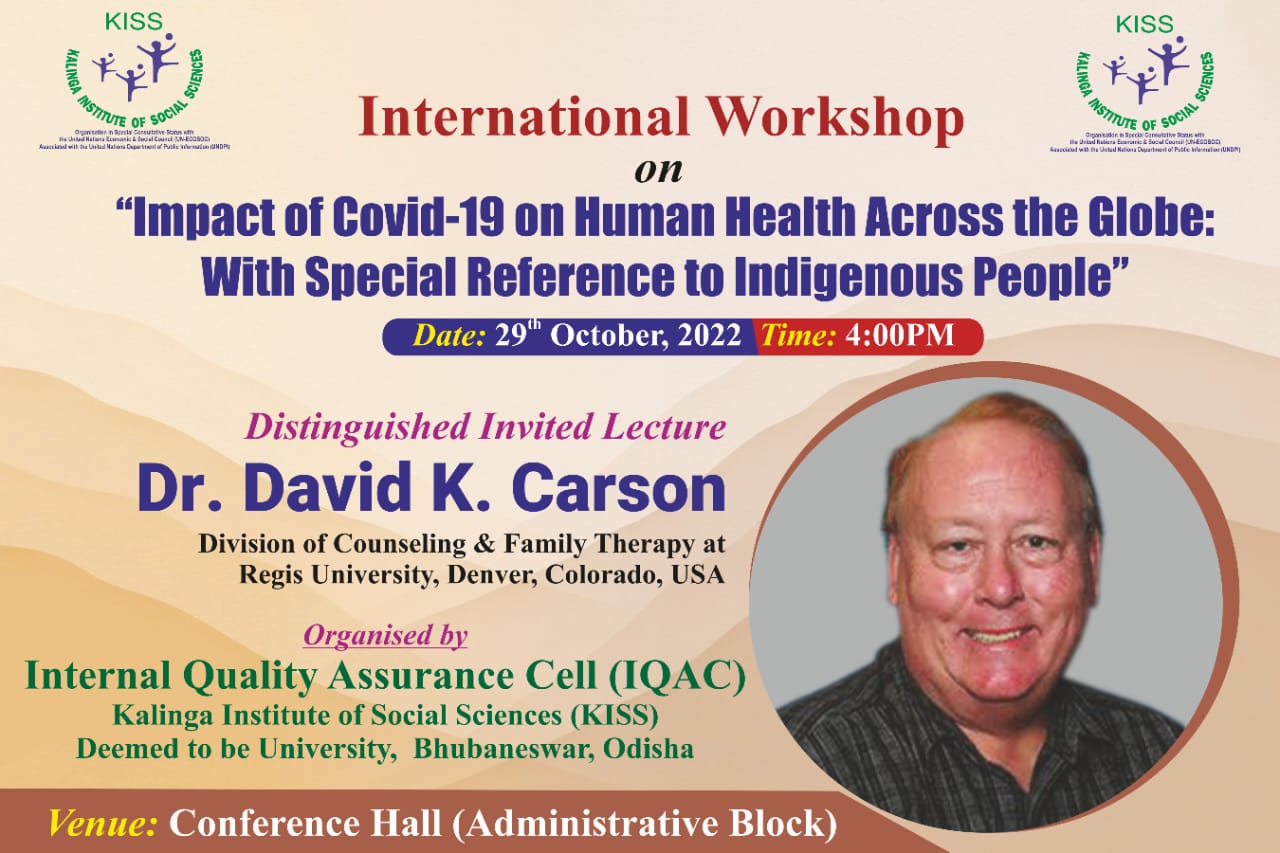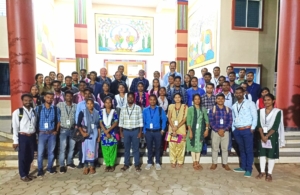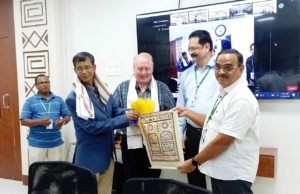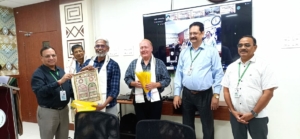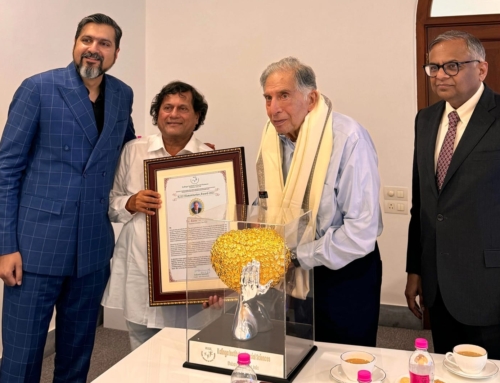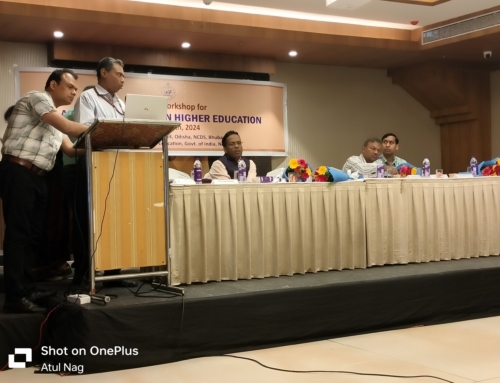The Internal Quality Assurance Cell, KISS-DU organized an international workshop on ‘The Impact of Covid-19 on Human Health Across the Globe: With Special Reference to Indigenous People’ on 29th October 2022. Dr. David K. Carson, an American psychologist who works at the Counselling and Family Therapy division, at Regis University in Denver was the distinguished invited speaker.
Professor Deepak Kumar Behera, the Vice Chancellor of KISS-DU, welcoming Dr. Carson and other guests emphasized the uniqueness of KISS-DU, as an exclusive tribal university, and an institution of innovation. He also recalled some of the special initiatives undertaken by KISS-DU students during the pandemic.
Dr. Carson, who retired as a professor of counselling and family therapy, is also a clinical psychologist, with extensive experience of working in north India and the Himalayas. He began with the observation that Covid is far from over, and that it is likely to persist in future, if in a more manageable form. Since it has not yet reached a point of closure or finality, it will be hard, psychologically, to know for sure what to do with it.
As the world undergoes the aftermath of covid, grief, loss and PTSD emerged as common popular responses. Referring to the lockdown, Carson said it was as severe as the virus, to the extent that it appeared to completely break down chains of human sociability. Incidence of child abuse, suicide, especially among adult males, anxiety, panic, sleep disorders, depression, self-medication and substance abuse has gone up in both the US and India. Speaking on the impact of Covid in India and Odisha in particular, Carson referred to the lack of access to healthcare among the tribal communities and vaccine hesitancy among them as factors that worsened the impact of covid on these communities. He drew attention also to the condescending approach on behalf of external healthcare providers as another roadblock. At the same time, the limited exposure of tribals, and their faith in traditional healing practices, often led to resistance against adopting common Covid precautions such as masks.
Prof. S. Gregory, former Dean, Faculty of Social Sciences and former Chairperson, Department of Anthropology, Kannur University of Kannur responding to Carson’s presentation, chose to take up for particular attention the inscrutability of the condition. He wondered if extended periods of enforced physical distance among human beings run the risk of encouraging greater alienation in society. Dr. Chandra Sekhar Swain, Specialist in Anthropological Studies the second discussant, observed that covid had nearly destroyed the academic infrastructure in tribal dominated areas of Odisha. He referred also to vaccine hesitancy among the tribals and their lack resources to access to online education. Professor Jatindra Kumar Nayak, Professor Emeritus, KISS-DU observed that covid had fractured the linear narrative about human progress from savagery to civilization, exposing the deeper inequalities and vulnerabilities in society, and offering an opportunity to rethink human relationships to nature, life, and work.
The Workshop witnessed a stimulating question and answer session from the participants. Dr. Prashanta Kumar Routray, the Registrar of KISS-DU highlighted some of the productive engagements during the pandemic undertaken by KISS and KIIT. He also shared some of the preparedness activities taken up at the earlies of the outbreak of Covid -19.
Professor Jugal Kishore Mishra, Director, Internal Quality Assurance Cell, KISS-DU proposed the Vote of Thanks.

